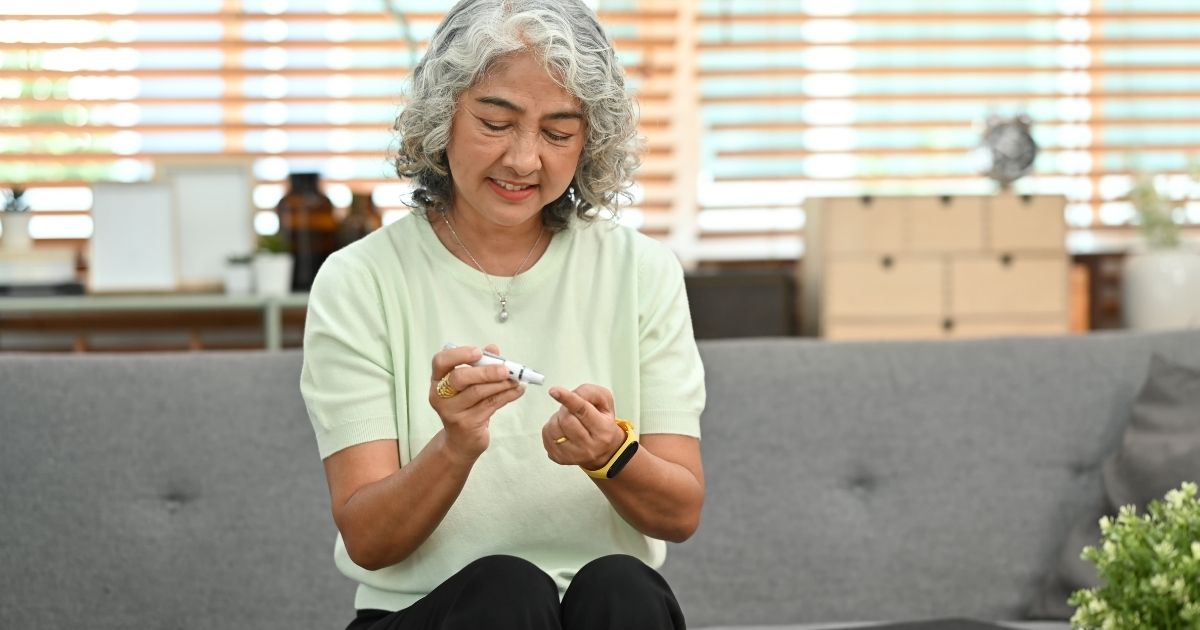Did you know? Roughly 22.5% of Michiganders over the age of 65 have been diagnosed with diabetes. With November being Diabetes Awareness Month, we're sharing the unique factors that specifically impact women, early warning signs and management strategies you can incorporate into your busy daily life.
According to Mary Cunningham, RD, CDCES, Senior Provider Program Specialist - Diabetes for Priority Health, women and men have similar risks of developing diabetes, but there are some unique factors that specifically impact women.
"Hormonal changes during pregnancy can lead to gestational diabetes, which increases the risk of developing type 2 diabetes later in life," Cunningham said. "Polycystic ovary syndrome (PCOS) is another condition that can increase the risk due to its association with insulin resistance."
When asked about early warning signs of diabetes that women should watch for, Cunningham emphasized that symptoms can depend on how high your blood sugar is.
"Some people, especially if they have prediabetes, gestational diabetes or type 2 diabetes, may not have symptoms," she said. "Women should look out for common symptoms like excessive thirst, frequent urination and unexplained weight loss."
Additional warning signs specific to women can include frequent yeast infections, urinary tract infections (UTIs) and dry, itchy skin. Blurred vision and fatigue are also important warning signs, Cunningham shared. Long-term health risks include heart disease, kidney damage and nerve damage.
"Women with diabetes are also at higher risk for complications during pregnancy," Cunningham said. "To protect themselves, women should maintain a healthy lifestyle, keep their blood sugar levels in check and have regular screenings for complications."
And while we're all leading busy lives, incorporate diabetes management into our daily routines should remain a priority. According to Cunningham, it's all about making small, manageable changes that fit into your routine.
"Preparing healthy meals in advance, keeping track of your blood sugar levels and incorporating quick exercise sessions, like a brisk walk during lunch break, can make a big difference," Cunningham said. "Using apps for reminders and tracking can also be incredibly helpful. Remember, balance is key, and it's OK to ask for help when you need it."
Dietary recommendations for preventing or managing diabetes abound, with Cunningham recommending a balanced diet rich in fiber, lean proteins and healthy fats.
"Focus on whole foods like fruits, vegetables, whole grains and lean meats," she suggested, noting it's also important to watch portion sizes and avoid processed foods high in sugar and unhealthy fats. "Women should also pay attention to their calcium and iron intake, which is essential for overall health. Ask your health care provider for a referral to medical nutrition therapy from a registered dietitian to get a personalized nutrition consultation to help you achieve healthy and sustainable lifestyle behaviors."
In addition to a balanced diet, Cunningham shared other helpful management strategies, including regular exercise, such as yoga or walking, which helps manage blood sugar levels.
"Stress management techniques, like meditation or deep breathing exercises, can also be beneficial," Cunningham said. "Regular check-ups with your health care provider to monitor your condition and adjust your management plan as needed are also very important."
There have also been some exciting advancements in diabetes care, with Cunningham sharing that continuous glucose monitors (CGMs) and insulin pumps have become more advanced, offering better blood sugar control.
"Research is also being conducted on new medications that improve insulin sensitivity," she said. "Staying informed with these advancements can help you manage diabetes more effectively."
Cunningham also shared an additional resource for those looking for additional resources.
"Diabetes Self-Management Education and Support (DSMES), also called diabetes education, provides you with knowledge, skills and support to manage your diabetes," Cunningham said. "This program is covered by Medicare, Medicaid and most commercial insurance plans. Ask your primary health care provider for a referral to DSMES."
Written by Sarah Suydam, Managing Editor for West Michigan Woman.




